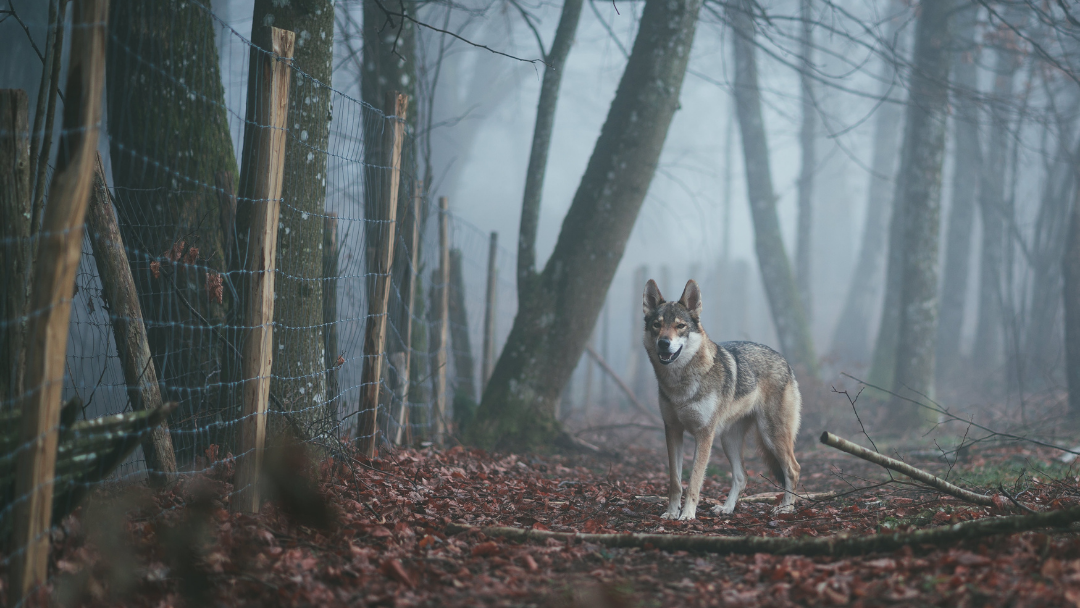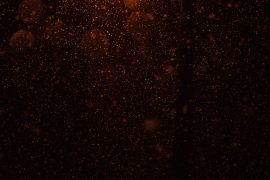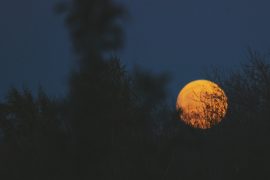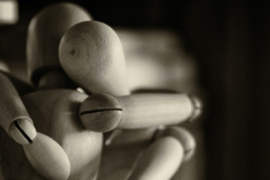THEY WOKE ME IN THE NIGHT BY GRINDING THEIR TEETH NEXT TO MY EARS. Their thin torsos stretched onto the walls and ceiling in black silhouettes as if they were dancing around a flame in a cave. Soon, I was in the kitchen being scolded for failing them as a father.
“You’re done,” Jaden, my youngest, said, flexing his seven-year-old upper body muscles. He looked like a small chimpanzee with the body hair of an allover dinosaur print footie. My oldest, Laney, stood next to him with her arms crossed, pouting with a sinister fourteen-year-old stare from behind a veil of curly dark bangs, shaking her head as if I were a disappointment. My wife Kora entered as soon as they started banding my wrists behind my back with their iPhone chargers.
“What are his crimes?”
Jaden removed a piece of scrap paper from his T-Rex embroidered chest pocket. I saw it was written in crayon as he passed it to Laney.
“We hereby accuse the defendant of the following fatherly crimes,” she said. “Over consumption of the bagels; stinginess of attention; sharp word arrows directed at Mom; smelly feet; uncleanly bathroom habits; moody temper; beastly grunts; psychic abuse; barefoot basement walking; colossal snoring; shower-time rushing; high alcohol intake; judging eyes; despair slouching…”
“Please,” I said.
“And first-degree hope slaughter.”
“Hope slaughter?” I said.
“Your reign,” Jaden said, twirling his little league bat in his hand. “Is over. You will dampen our dreams no more.”
“Kora,” I said.
“And how do we find him?” She said.
“Guilty!” They shouted, before Jaden clipped my knees and they dragged me into the forest beyond our yard to bury me up to the neck in mud.
This happens from time to time. My family convicts me of my crimes and sentences me to time buried in the ground. They send me here to rediscover listening, they say, that I deserve to be punished whenever I become a fascist of the house, when I ignore them for the dictatorial voice in my head. I get it. I am a human being and sometimes I can get stressed and so caught up in words, I forget I have a body, forget I have an obligation to others through action and speech. There have been many times when I’ve given up the English language, expressing my thoughts in guttural murmurs, opinionated drivel, and have to leave my home at Kora’s request; it’s more of a recommendation than an order, as she understands that sometimes second-rate speech is the only way to let the pain out. Now it seems that I have gone too far, yet again. But hope slaughter? Come on.
Being the fourth time that my family has hog-tied me and buried me in the forest, I’ve started to become aware of certain things. There is a silence that comes from being this low to the ground, from being immersed up to your neck in nature. It’s a silence that cloaks you, the way one feels the locked tongue that comes from being non-bilingual in a foreign land. When one reaches this level of silence, observational research is only natural. Here, driven into the mossy bed of the forest like a spike, I am mute; I am a stranger to nature’s voice. Trying to listen and decipher is the only way I can shut up internally and remember how I used to be.
I was a person once. Grotesquely male, a scientist with esteem and accolade, a home that kept out the bears and thieves. I once had visions of being great, someone who time would carry along holding up their picture. But all that went away ever since my first time out here in my hole. My crimes that time were as such: shrewdness, impatience, intrusion. Next thing, I was bloodied, bruised—Jaden was more liberal with the bat then—and above both of those things, stubborn as all hell. You can’t put me down, I thought. I am your father for fuck’s sake. A man of my stature, my acclaim. But you’d be surprised at the will of the disenfranchised; and Jaden has a mean swing for his age. I’m kind of proud.
My first reaction to this process was to say screw Jaden and his court. If they knew any better, they’d hold a trial out here in the law of nature; see how my fatherly crimes measure up to say, the male grizzly bear, who eat their young. I’ve never done anything thatbad, I thought. So, I got loud a few times and bullied him into tight corners of shame, but all fathers do that; and yeah, I blistered his hands from making him grip a bat for long enough to learn how to hit a laced ball, but sorry for trying to implement some skill set into his defective DNA lineage (my side, not Kora’s). I remember thinking it’s not like I stretched him out on a table and snipped at all of his fearchords with pliers like my father did.
But, on that first night, as I writhed around and tried to shimmy free of my dirt straitjacket, all I could see were Laney’s weepy eyes as she told me that this needed to be done, that they couldn’t take me being in the house anymore. I trusted her, my teenage daughter, who always was obsessed with brutal honesty; it’s no shocker that she smiles when reading out my list of crimes. I feel that she’s the one I’ve really let down. For no reason other than what is a failure to understand. She is not like Jaden, some beast of my seed that I know inside and out, an animal like me who needs to be tamed. She is much like Kora, an ethereal spirit. Which is why the only way I knew how to love her was to let her be; to not let the microscope of study affect her behavior in any way. She would call me aloof or distant, but I would call it crown shyness, a phenomenon observed in some tree species, in which the crowns of fully stocked trees do not touch each other, forming a canopy with channel-like gaps between them, almost like one tree’s branches are haloing the others, showing what love and care can look like with space, to inhibit the spread of one’s own disease or leaf-eating insect larvae to the other. I cannot say it any clearer.
That first time they left me here for two days, and when I returned home I was changed, broken even. After each time I am buried, it seems that I then do fine in the house for a few weeks at a time, reveling in my own obsessions, not harassing my family by existing, but then I start to unravel and become caught up in the motions of the identity of “fatherhood.” I begin to get restless in my body and act out with ridiculous phrases, or sometimes with scolding silence. I bang on doors, slam dishes down into the sink, bark orders. I see my children as my workers, my wife as my subordinate. It’s as if I forget what I saw on that first night of burial and relive the man-of-the-house cycles that have been passed down through generations. For my father and grandfather, it was alcohol that helped them; for my great grandfather, it was work. For me, it’s a judicial system, where my kids are the prosecutors, my wife is the judge, and the ground is my prison.
I’m getting thirsty. When my family banishes me to this excavation of mud and sorrow, they do so with no food or water, planting me in the earth with hopes that true nourishment will allow for growth. I can’t blame them for wanting a better Dad. I’m actually jealous I hadn’t thought of this for my old man, put him on trial. My way of internalizing his behavior and quietly murdering him in my mind had only landed me in years of expensive therapy. Is your child ending up in therapy the marker of failing as a parent? Or is it the marker of succeeding? Raising a person to be self-aware enough to get help and not retreat to vices is no easy task; perhaps, I should call my dad and thank him. So, what does it mean when your kids feel authoritative enough to persecute you?
I am hungry and want to scream out to my wife, but I know successful fasts start with the ceasing of speech, the shutting of the mouth, then what follows is a muting of the mind once you get past desire’s antics. All in the name of experiencing clear thought (an oxymoron). Consider what I’m doing to be a plugging into the ground like I’m a Universal Serial Bus downloading what I can store from the network of mycelia all around me. Trying to access an essential file to override the fathervirus that exists within me. This Earth-buried, frostbitten-hair-looking mushroom is the epitome of cross-platform technology, sharing nutrition, like information, from trees and plants, eradicating pollution from the soil and water. A perfect system. It’s what our Internet aspired to, but that is made up of language, therefore impure. With every 1, a 0, its opposite; with every thought, its adverse, a pollution of thought.
Speaking of, that first night is when I made a discovery. I’ve found something out here in my forest-cell and every time I come back here, I am forced to relearn it. Call it an order of things. I should say that when I’m here, assuming my rightful position in the ground, scribbling into this thoughtjournal to rediscover my place in existence, that there is a level of danger to my mentalwork. It’s in the lined blankness of this natural medium where the beast of true language lives; I better tread lightly, as to not waken it. We have not been able to capture and share it without the use and filter of physical tools, like our brain parts and mouths, pens and paper, a process that taints the message before it’s even received. If this were to get out as is, I would be persecuted, perhaps injected with a lethal dosage of media, where my findings would be erased from memory for eternity.
You see, it’s to my human-perspective (another oxymoron) that everything seems random, uncoordinated, chaotic—this, I suspect, is the ego’s doing; shuffling around the pieces just to give me a puzzle to solve, so to speak—but when I look closely around, from where I am buried, I see the way everything works in relation to the other, how each species of plant, animal, and insect depend on communication to coexist, leaving me feeling left out like how I felt at what was once called “home,” utterly useless, except for allowing the theft of carbon from my lungs. And now after witnessing the order of nature, life is in disarray and I am no longer able to uphold the illusions of control that is essential of a successful body. So, now I consider myself to be just a perspective. I’m no longer a husband, a father, a man, or even a being—only a skin vessel through which ideas can pass. Kora, my wife, trained astrologist, vegan, yogi tinged slightly with privilege, believes this is just a phase of aging crisis, but I am not as knowing as she; her spirit seems to be born of that which I cannot understand. She tells me I am lost in the realm of thoughtspeak and that the breath is a doorway out. “Some say that the breath is the origin of language,” I told her, which made me wonder why every time I come to this place to meditate, all I hear are my own cries for help.
How can I learn in the forest when my head is full of fear? All these noises—creaking, breathing, cooing, snapping. When I’m here in my hole, I am reminded of the power of words in a “family.” My first word as a newborn species was “Shhh,” a shushing sound, already craving silence to serve my thoughts in the presence of expecting parental eyes. They stood around my crib, adulating my vulnerable self, unaware of how tainted I’ve already become from their judgements. It was from then on that I had no hope. Lacey’s first words were incriminating vowels. “You,” she’d say. I’d ask, What’s the matter sweetie? “You. You.” Jaden’s first words were an erasure, as if I never existed. “Ma-ma. Ma-ma.” Is language only our own interpretation of speech? When I listen to the forest speaking to me, all I hear are threats. How moronic of us to assume wewere the speaking ones. That somehow the outpouring of petty thought, impulsive motive, lust-driven emission, and delusional hopespeak would pin us atop God’s hierarchy; we would probably try to topple her throne, if she ever talked back. Meanwhile, as we spray each other with speech and fill each other’s minds with the toxic sludge of opinion, there is silent oration going on around us, at all times, in total harmony. So, the question is no longer if plants can talk, but if we are deaf.
“Hello,” I say to the Hazel Alder plant beside me.
Like God, it doesn’t answer. Does the plant know it’s being spoken to? Does it know it’s being eaten? Does it even care? When in danger, I yell for help, for God, for my mother. When maize is being attacked by beet armyworms, they release chemical clouds that attract wasps to lay eggs in the caterpillar’s bodies; an enemy of an enemy is a friend. A plant responds to touch internally, biochemically analyzing the feeling to shape a future behavior, but when I touch a leaf, I feel nothing and understand even less. Now, who’s more efficient? See? I’m doing it again, the sardonic thoughtspeak of a shattered ego.
The void of night has drawn close. It must be around three a.m. of I don’t know what day. I’m immersed in the ambient sound of chirps, clicks, and buzzing. What the insects say is I’m unwelcome. That the absence of light will be my downfall. But I don’t care. I’m starting to miss my family. Deep in the dirt I feel fibers of hair not of my own tingling up from my shins to my torso. It feels like one creature with thousands of tiny legs having its way with me. It’s not as if I don’t deserve it, I’ve done unspeakable things. But who that stands upright and walks hasn’t? Awful is in our genetic make-up. It’s how we prospered, how we eventually acquired the moral sense to condemn ourselves. And I certainly do. I just don’t know how to explain any of this to Kora, Laney, and Jaden; it’s a total failure of language to try to communicate feelings of guilt and shame. But maybe it’s not anything I can say but do. Even better, maybe it is something that I can just be. Instead of ruining my chances of being a truefather by speaking to them through words, maybe I can embody compassion and love, something transferrable through looks and consented huddling. What if the best kind of Dad you can be is devoid of conviction?
In the distance, I spot a coyote clearing bark chips, grass, and dirt to burrow for the impending cold night. I’m instantly jealous of its innate sense, its call to action; when facing a fatherchallenge, I usually recoil into my infancy posture, unable to decide what to do—there are too many fucking choices. Being a good father is toggling the switch between self and selfless, until years later you realize it should have been stuck on the latter.
Re: the coyote. The only sense I have is to stab through its chest plate with a ringed key and remove its hide for my benefit. I have yet to understand why the human instinct is to kill, violate, and pillage; it is why our greedy hearts beat from within a fatty wall of shame. The animal then notices my head sprouting from the dirt and shows its teeth, as if it has smelled my thoughts. I always forget the damage caused by the images our minds paint. It steps toward me and snarls. To this I internally retreat and close my eyes to mimic prayer, the unifying signal of surrender.
It’s here where I feel capable of true human silence, both inside and out. Finally, capable of listening. The fear of death will do it every time, a complete wiping out of the map of thought. An uninhibited awareness. Even if what I hear now in the sounds of the forest is indecipherable and terrifying, I can place myself within a system of being, an order in which I humbly accept not being first. This, I realize, is the point. To be a part of and to flow with, rather than control. It is when I understand my place in this order, I can return to my family. Until then I listen and look for Jaden and Laney carrying shovels, signaling to them with my eyes just please don’t let me die here, I promise to be better. I promise.
NICK FARRIELLA lives in Montclair, New Jersey. His fiction has appeared in New World Writing, McSweeney’s, Joyland Magazine, Hobart, and elsewhere. He is also an assistant fiction editor for X-R-A-Y Magazine.
Like what you’re reading?
Get new stories or poetry sent to your inbox. Drop your email below to start >>>
OR grab a print issue
Stories, poems and essays in a beautifully designed magazine you can hold in your hands.
GO TO ISSUESNEW book release
China Blue by Catherine Gammon. Order the book of which William Lychack Jeffries calls “a fiery declaration of all that is inexpressible about desire and loss and the need to find a home in a world in which even the most solid and real of things feel often less than completely solid or real.”
GET THE BOOK



